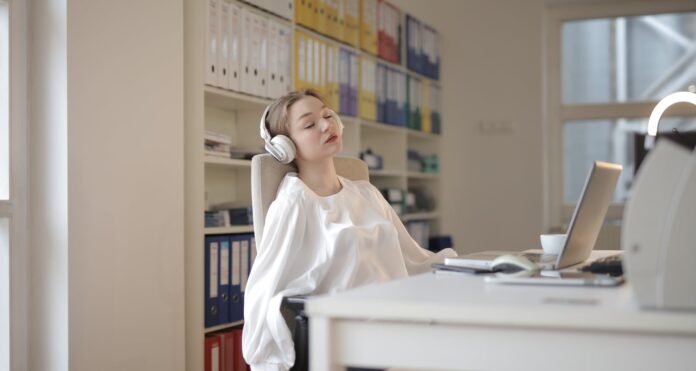Sleep apnea can run your whole life if you let it. It interferes with your sleep and leaves you tired and weak throughout the day. It is inconvenient and dangerous when it isn’t treated. Use the tips and trick below to treat your sleep apnea and enjoy life more.
Stop your destructive ways. Two of the most common offenders are drinking and smoking. Drinking suppresses your breathing and causes a lot of harm to your respiratory system. Cigarette smoke is full of cancer-causing chemicals which are bad for your lungs. Letting these habits go can reduce your symptoms and make sleeping easier.
Do you have a smoking or drinking habit? Break these unhealthy habits right away. The reason is because these harmful substances impact your airways, and as a result, your sleep. Alcohol relaxes your airways, making them more prone to collapse, and smoking can cause them to swell, restricting airflow. If it is not possible for you to quit cold turkey, then try not to smoke or drink immediately before bedtime.
If you have sleep apnea, be sure to ask your doctor every five years if you should have a follow-up sleep study. As your weight and health change, your CPAP pressure may need to be adjusted. The most accurate way to reassess your needs is to have another sleep study with CPAP so the appropriate pressure can be determined.
Try some throat and mouth exercises. One reason people suffer from sleep apnea is because their throats close when they sleep. Strengthening these muscles can decrease the chance that they will go slack while you are sleeping. Try some tongue, jaw and neck exercises to increase your throat strength.
A good physical exam, and a look at your family history, can quite often easily determine sleep apnea’s presence. Sleep studies may be suggested and your doctor might refer you over to a type of sleep specialist that can diagnose and treat your symptoms.
On easy way to help limit your sleep apnea is to stick to regular sleeping hours. When you stick to a sleep schedule that is steady and consistent, you will be more relaxed and sleep much better. Apnea episode frequency will be greatly reduced if you can get plenty of sleep every night.
If you are searching for ways to prevent sleep apnea, try sleeping on your side as back sleeping lets gravity take over. This causes your tongue and other soft tissues in your throat to drop, which could obstruct your airway. Try putting a tennis ball in the neck of your pajamas to discourage rolling onto your back. You could even stuff a pillow with tennis balls and wedge that behind your back.
Playing a wind instrument can be helpful for sleep apnea. You are going to have a good time with the music, and you get to give your mind a workout. However, you are also working out your throat muscles that regulate breathing. If you consistently make an effort to strengthen your throat muscles, you’ll have a better time sleeping with sleep apnea.
While it is common sense to avoid caffeine before sleeping, this is especially true for people who have problems with snoring or apnea. This is a simple thing to cut out, just remember that this includes soft drinks, coffee and even some types of coffee flavored foods. This will also help you sleep faster.
Many people simply lay down whenever they feel about it, and then complain when they aren’t sleeping well. The human body is based off of routine, so it is greatly beneficial to go to sleep and wake up at the same time each day. This can even help with snoring and apnea issues.
If you are drowsy, listen to your body. If you are not getting enough sleep at night because of sleep apnea, you are more likely to feel drowsy during the day. This indicates that your treatments are not effective. So, when you are feeling drowsy on a regular basis, consider visiting your doctor to re-discuss your treatment options and your current apnea treatment plan.
While it is common sense to avoid some things before sleeping, like caffeine, many people load up their plates and then go to bed. This is not healthy in general and can worsen sleeping issues like apnea. Avoid eating any heavy meals before going to bed and you will find yourself sleeping better.
Try taking a soothing bath before you go to bed to reduce anxiety. A hot bath will reduce your tension and make you feel more relaxed. After your bath, you are likely to fall asleep faster and have less apnea flare-ups.
Shed the pounds that have been bugging you. Those same pounds that you cringe at when you look in the mirror may also be causing your sleep apnea. In fact, there is a rule of thumb out there that for every 10% of the weight you lose, your sleep apnea will improve by 30%.
Make some drastic lifestyle changes if you must, in order to cure your sleep apnea. This means if you are smoking, drinking or taking sedatives, avoid doing so. If you don’t, this can worsen your sleep apnea symptoms. If you are addicted to smoking or drinking, consider getting help before being able to relieve your sleep symptoms.
If you use a CPAP (continuous positive airway pressure)device for your sleep apnea, make sure you know how to put it on correctly. Make sure the straps are tightened just right and make sure the device is sealing over your air passageways. The device’s fit is important to its operation.
As stated above, sleep apnea can take control of your days and nights. Leaving you waking up throughout the night and still tired in the morning can take a lot out of your day. Use the helpful tips listed above to take control of your life back and enjoy each waking (and sleeping) moment.



